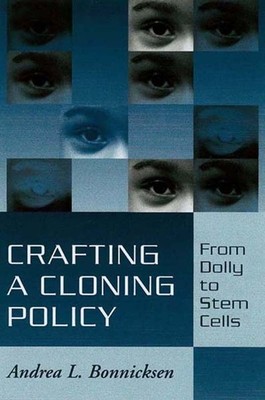
- We will send in 10–14 business days.
- Author: Andrea L Bonnicksen
- Publisher: Georgetown University Press
- ISBN-10: 087840371X
- ISBN-13: 9780878403714
- Format: 16 x 23.1 x 1.7 cm, softcover
- Language: English
- SAVE -10% with code: EXTRA
Reviews
Description
This book looks at the what kinds of policies were developed to address advances in cloning technology in the U.S. after Dolly. The broader question Bonnicksen addresses is the extent to which we are willing to regulate new genetic technologies and how such regulation happens. This book is at the nexus of policy and bioethics. Bioethicists and ethical issues play a large role in her story (esp. the National BIoethics Advisory Committee), as do the interest groups and players usually examined in the political science literature--government agencies, state and federal courts, legislatures, private groups (e.g., medical/professional associations). She concludes that the U.S. has a large trust in scientific developments, difficulty in reaching ethical concensus, and a pluralistic, free-market, individualist mindset that all shape a cautious approach to regulating medical technologies. There is one comparative chapter that also looks at the UK, Canada, and Australia.
EXTRA 10 % discount with code: EXTRA
The promotion ends in 19d.14:10:48
The discount code is valid when purchasing from 10 €. Discounts do not stack.
- Author: Andrea L Bonnicksen
- Publisher: Georgetown University Press
- ISBN-10: 087840371X
- ISBN-13: 9780878403714
- Format: 16 x 23.1 x 1.7 cm, softcover
- Language: English English
This book looks at the what kinds of policies were developed to address advances in cloning technology in the U.S. after Dolly. The broader question Bonnicksen addresses is the extent to which we are willing to regulate new genetic technologies and how such regulation happens. This book is at the nexus of policy and bioethics. Bioethicists and ethical issues play a large role in her story (esp. the National BIoethics Advisory Committee), as do the interest groups and players usually examined in the political science literature--government agencies, state and federal courts, legislatures, private groups (e.g., medical/professional associations). She concludes that the U.S. has a large trust in scientific developments, difficulty in reaching ethical concensus, and a pluralistic, free-market, individualist mindset that all shape a cautious approach to regulating medical technologies. There is one comparative chapter that also looks at the UK, Canada, and Australia.


Reviews